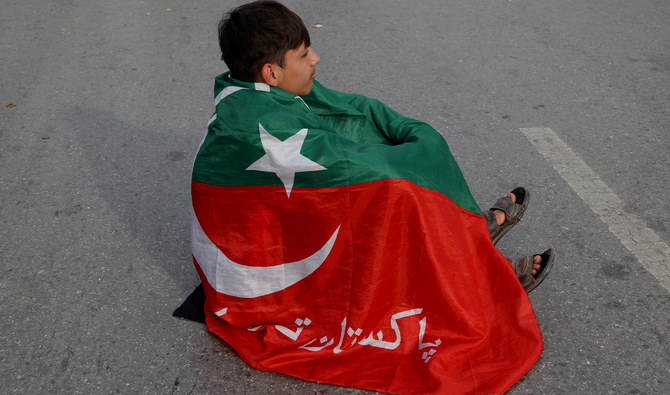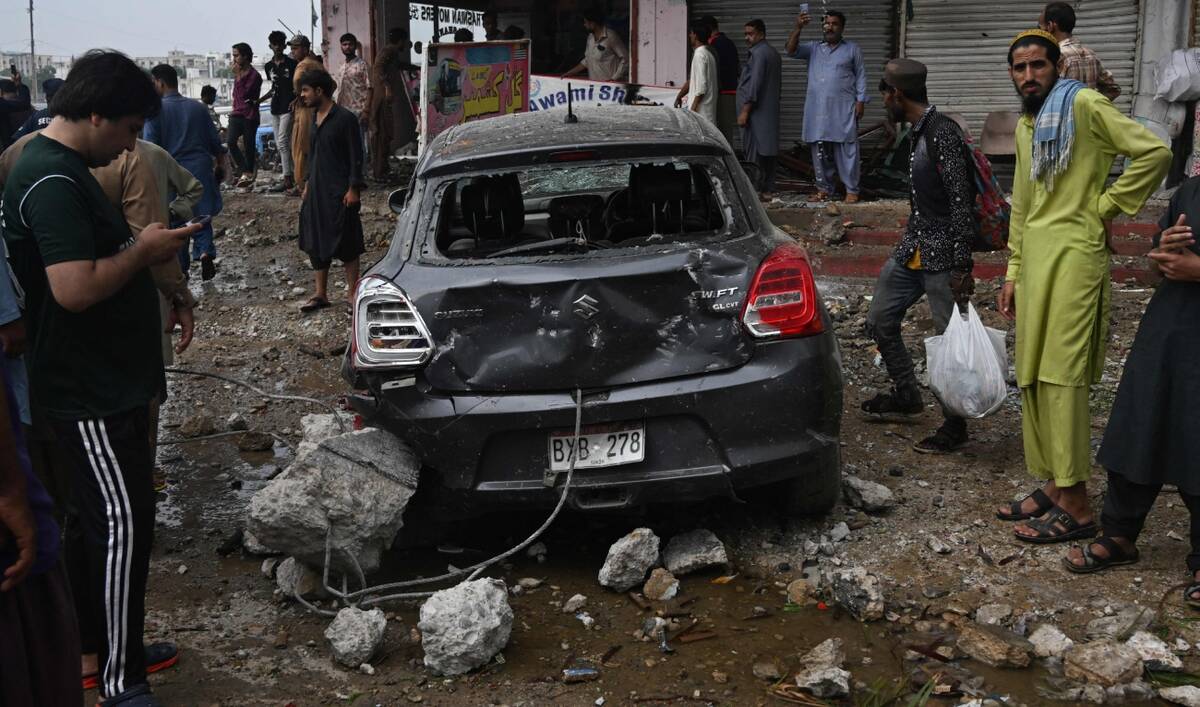ISLAMABAD: Former prime minister Imran Khan on Tuesday warned rivals against forming a government with “stolen votes,” hours after his Pakistan Tehreek-e-Insaf (PTI) party announced alliances with religious parties Majlis Wahdat-e-Muslimeen (MWM) and the Jamaat-e-Islami (JI) to form coalition governments in the center, Punjab and Khyber Pakhtunkhwa (KP).
Last week’s general elections in Pakistan heightened political uncertainty in the country, as the results showed no party won the majority to form its government at the center. Independent candidates backed by PTI won 93 seats, while Pakistan Muslim League-Nawaz (PML-N) obtained 75 seats, and the Pakistan Peoples Party (PPP) won 54.
After Khan’s PTI rejected the possibility of forming a coalition government with the PPP, PML-N or the Muttahida Quami Movement Pakistan (MQM), PPP Chairman Bilawal Bhutto Zardari announced on Tuesday his party would support the PML-N’s candidate for prime minister.
Khan’s party held nationwide protests over the weekend and on Monday against what it calls rigging during elections. The party has accused Pakistan’s election regulator of rigging the polls, a charge vehemently denied by the Election Commission of Pakistan (ECP).
In a message from jail shared from his official X account, Khan thanked supporters for entrusting his party with a two-thirds “resounding” majority, adding that there was a dire need for fairness and democracy in Pakistan’s elections.
“I warn against the misadventure of forming a government with stolen votes,” his message read.
“Such daylight robbery will not only be a disrespect to the citizens, but will also push the country’s economy further into a downward spiral.”
The former prime minister said his party would “never compromise” on the people’s will.
“I have categorically instructed my party against engaging with any political party that has robbed people’s mandate, including PPP, PMLN & MQM,” he said.
PTI announces alliances with MWM, JI
The PML-N and the PPP initiated coalition talks last week to boost their seat count to the required 169, including alliances with smaller parties and defectors from PTI. Along with the 266 directly elected seats, there are also 70 reserved seats — 60 for women and 10 for non-Muslims— allocated based on each party’s strength in the National Assembly, to determine their final standing.
A prime ministerial candidate needs to demonstrate a simple majority of 169 seats in the National Assembly, which consists of 336 seats.
On Tuesday, the PTI announced it would attempt to form its government in the center, KP and Punjab through alliances with religious parties.
“I have met Khan in jail today [Tuesday] and he has given the approval to form a coalition [government] with the MWM at the center and Punjab levels, and the JI in KP,” Raoof Hasan, the party’s spokesperson, told reporters at a news conference.
The MWM, a religious party that advocates for the rights of Shia Muslims, secured victory from only one National Assembly constituency in last week’s elections. Senior leaders of the PTI and MWM both confirmed last week they were in talks for Khan’s independent candidates to merge with the religious party.
If the independents want to gain reserved seats, they must join another party to form a bloc.
Hasan said the PTI had decided to secure the quota of reserved seats in parliament, which was possible through an alliance with another party.
“Moreover, Khan has decided to nominate Gandapur as the PTI’s candidate for chief minister in KP,” he said, referring to former federal minister and PTI leader, Ali Amin Gandapur.
Independent candidates backed by Khan secured the most number of seats in KP, 90, while the JI won three. The Jamiat Ulama-e-Islam Pakistan (JUI-F) won seven seats while the PPP secured victory from four constituencies in the province.
On Tuesday, former premier Shehbaz Sharif said independent candidates backed by Khan were welcome to form a government if they could prove their majority in parliament. But if they failed to do so, other parties would go ahead and form a government, and his PML-N was in talks with some groups for this purpose.






















